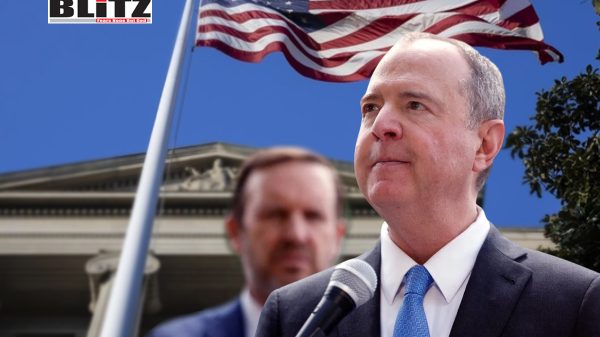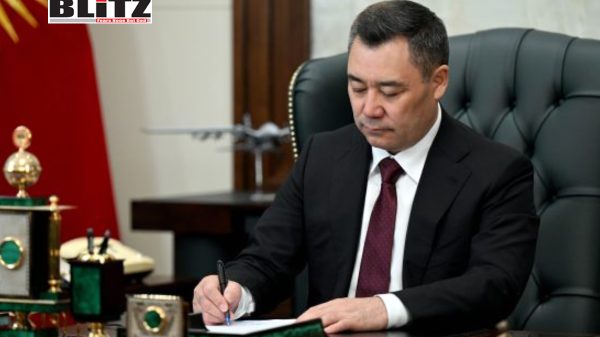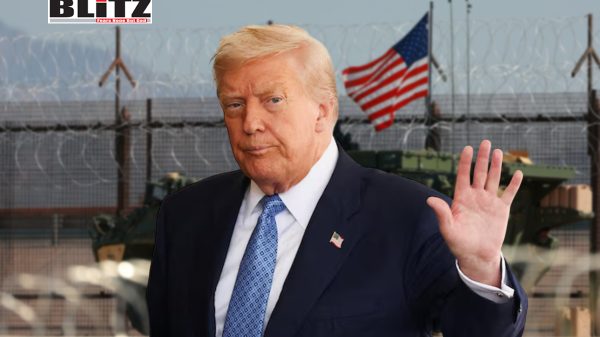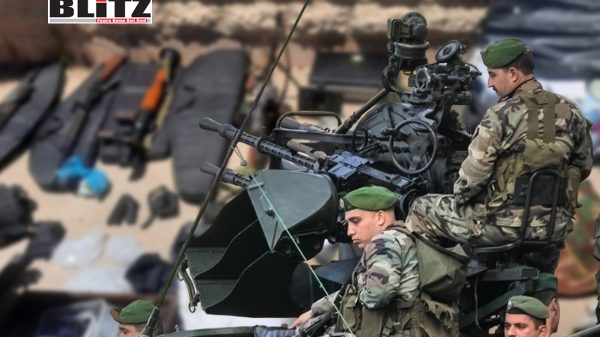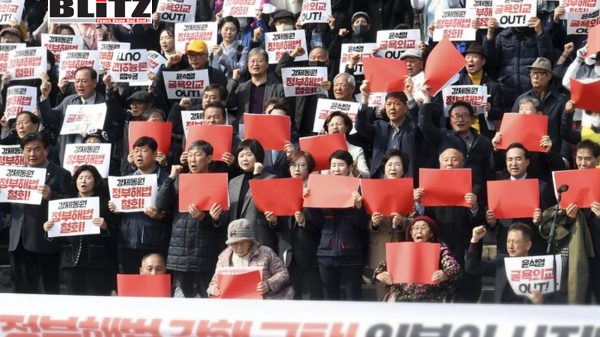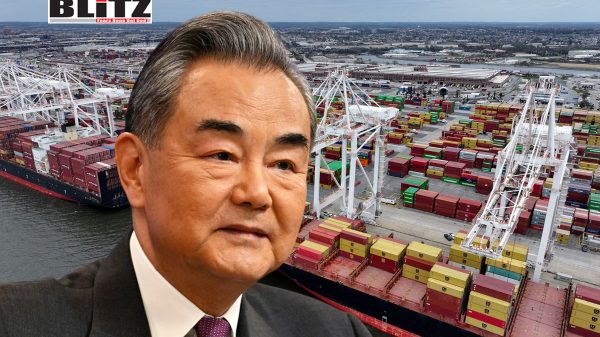North Korea removes border loudspeakers in sign of easing inter-Korean tensions
- Update Time : Sunday, August 10, 2025
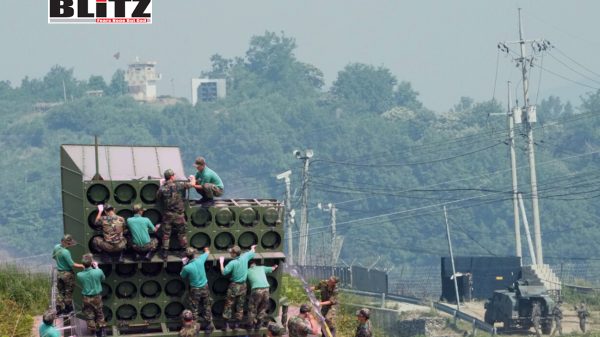
In a rare sign of de-escalation along one of the world’s most heavily militarized borders, South Korea’s military confirmed on August 9 that it had detected North Korean workers dismantling some of the loudspeakers that for months had blared propaganda and bizarre sound effects across the inter-Korean frontier. The move comes just days after Seoul took down its own border loudspeakers in what the government of new President Lee Jae Myung has called a “confidence-building gesture” toward Pyongyang.
The dismantling of these devices marks a notable pause in the decades-old psychological warfare campaigns that have periodically flared along the Demilitarized Zone (DMZ). However, the gesture is fragile and could easily be reversed, with tensions poised to spike later this month as South Korea and the United States prepare to conduct their annual large-scale joint military drills-a perennial trigger for North Korean saber-rattling.
South Korea’s Joint Chiefs of Staff confirmed that the North has begun taking down some, though not all, of its loudspeakers. Officials declined to reveal specific locations, citing security reasons, and stressed that it remains unclear whether Pyongyang intends to dismantle the entire network.
Until recently, these devices broadcast an odd mix of aggressive messages and irritating noises-including howling animals and pounding gongs-in a tit-for-tat exchange with the South. The South’s broadcasts, when active, often featured news critical of the North Korean regime, appeals to defect, and K-pop music, which is considered subversive by Pyongyang’s leadership.
Border residents on the South Korean side had complained about the intrusive nature of the broadcasts, which could be heard for miles. Many saw the exchange as a needless provocation that risked military miscalculation.
The North’s broadcasts ceased in June after President Lee, who took office earlier that month, ordered a halt to South Korea’s own propaganda transmissions. The dismantling of the South’s equipment began on Monday, though military officials have been careful to note that the speakers could be reinstalled quickly should tensions flare again.
President Lee’s decision marked a stark contrast with the hardline stance of his predecessor, conservative former president Yoon Suk-Yeol, whose government resumed loudspeaker operations last year after a yearslong hiatus. That move was itself a response to North Korea’s unconventional provocation: sending balloons filled with trash and refuse drifting into South Korean territory.
The speakers were part of a broader Cold War-style psychological warfare campaign that also included leaflet drops and radio transmissions. Pyongyang has long bristled at such tactics, viewing them as direct attacks on the legitimacy of Kim Jong Un’s leadership.
South Korean K-pop songs, in particular, have been a point of contention for the North. Kim Jong Un has launched a sustained crackdown on South Korean pop culture, language, and media, portraying them as ideological threats to his family’s dynastic rule. Reports from defectors and human rights groups suggest that possession of South Korean media in the North can result in harsh punishment, including lengthy prison terms or even execution.
By dismantling its loudspeakers, Pyongyang may be signaling a willingness-however tentative-to explore a thaw in relations. But analysts caution against overinterpreting the move. North Korea’s broader strategic posture remains unchanged, with Kim Jong Un prioritizing the expansion of his nuclear arsenal and deepening military ties with Russia amid the ongoing war in Ukraine.
Despite Lee’s overtures, North Korea has so far shown little appetite for substantive engagement. In late July, Kim Yo Jong, the influential sister of Kim Jong Un and a key political strategist, dismissed Seoul’s diplomatic gestures as meaningless so long as South Korea maintains its alliance with the United States. She also scoffed at the Trump administration’s reported interest in resuming nuclear talks, making clear that Pyongyang sees no urgency in returning to the negotiating table.
The North’s stance underscores the enduring challenge for Seoul: balancing its security dependence on Washington with the goal of improving ties with a neighbor that has historically viewed the US-South Korea alliance as a hostile military pact.
The détente may soon be tested. On August 18, South Korea and the United States are scheduled to begin their annual joint military exercises, which will involve large-scale field maneuvers and simulations of potential conflict scenarios. North Korea routinely denounces these drills as invasion rehearsals and has often responded with weapons tests, including missile launches and artillery fire.
Such military displays could quickly unravel the tentative goodwill symbolized by the removal of the loudspeakers. Given North Korea’s track record, the possibility of a sudden reversal-reinstalling the speakers, resuming hostile broadcasts, or carrying out provocations-remains high.
The developments on the Korean Peninsula also have broader geopolitical ramifications. North Korea’s deepening relationship with Russia, driven in part by shared opposition to US policies and by Moscow’s need for military support in Ukraine, complicates any effort to bring Pyongyang back to denuclearization talks. Meanwhile, Seoul’s alignment with Washington and Tokyo through trilateral security cooperation is likely to reinforce Pyongyang’s perception of encirclement.
For President Lee, the dismantling of the loudspeakers represents a modest but tangible step in his administration’s goal of lowering the temperature on the peninsula. Yet without reciprocal moves from Pyongyang in areas such as missile testing, military deployments, or human rights, the initiative risks being seen as one-sided.
The removal of the border loudspeakers by both Koreas is, at least on the surface, a welcome sign in a region where even minor gestures can carry outsized symbolic weight. But history has shown that such moves are often reversible and can be quickly undone by shifts in political winds or military posturing.
As the August military exercises loom, both sides face a choice: continue down the path of cautious de-escalation or revert to the familiar cycle of provocation and retaliation. For now, the border is quieter-but few expect it to stay that way for long.


